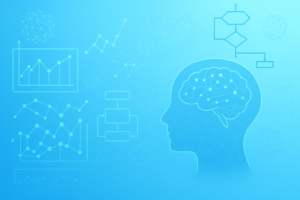
Data Science
Leader: Concha Bielza
In this area a data set is analysed with statistical and machine learning techniques to extract useful information to be applied in different domains. Current issues of interest include: data streams, multi-dimensional supervised classification, multi-label classification, clustering in high-dimensional spaces, data imputation, feature subset selection using methods as Bayesian networks, regularization, classification by regression. Application domains are: neuroscience, biomedicine, agriculture, bioinformatics, sports, computer vision, bibliometry, environment, industry, among others.

Heuristic Optimization
Leader: Pedro Larrañaga
Our research focuses on the extension and improvement of optimization methods and their application to practical problems. We investigate state of the art questions related to the improvement of heuristic optimization methods and extension of their applicability to more complex problems (e.g. multi-objective, mixed representations, non-continuous objective functions). We also address real world problems as thus that arise in neuroscience, bioinformatics, etc. Relevant research topics are the conception of techniques that reduce the computational cost of the algorithms, derivation of theoretical results on their accuracy and convergence, paralelization, knowledge extraction from the data generated by the optimization process, identification of domains of difficulty for current approaches, and transferability of the optimization methods across similar problems.
The optimization methods comprise hybrid and memetic algorithms, dynamic and adaptive optimization strategies, large-scale continuous and permutation optimization, combined heuristic optimization techniques and learning methods (machine learning and reinforcement learning), and distributed and parallel evolutionary algorithms. These approaches use combined strategies based on different optimization techniques, such as local search methods, genetic algorithms, evolutionary strategies and estimation of distribution algorithms.

Computational Neuroscience
Leader: Concha Bielza
Current neuroscience demands the development of new computational techniques based on machine learning methods. This shapes computational neuroscience. Some problems that we face include: (a) neuroanatomy issues, like modeling and simulation of dendritic trees, clustering of dendritic spines, and classification of neuron types based on morphological features; (b) neurodegenerative diseases, like predicting health-related quality of life in Parkinson’s disease and searching for genetic biomarkers in Alzheimer’s disease.

Machine Learning in Industrie 4.0
Leader: Pedro Larrañaga
The next industrial revolution, based on the Internet, promises a significant increase in manufacturing productivity and efficiency, and the arrival of new business markets. In the factory of the future the interconnection of components, machines and processes (Internet of Things) enable the compilation of a huge amount of data. Our research focuses on using machine learning techniques for analyzing these data in an intelligent way, in order to provide decision makers (humans or machines) with the right information at the right moment for the right purpose. Current issues of interest applied to Industrie 4.0 include solutions for: Big Data, cyber-physical systems, data streams, predictive analytics, dynamical models, and decision support systems.